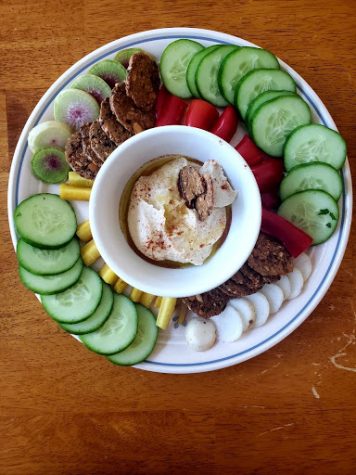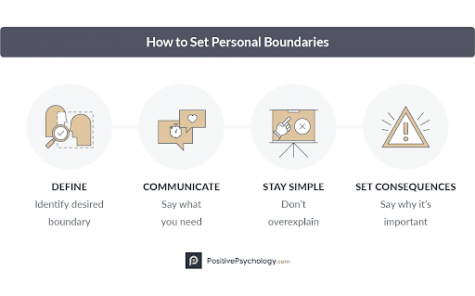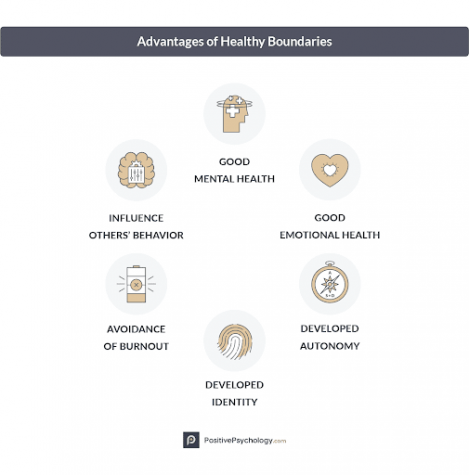Burnout, a state of utter mental, physical, and likely, emotional exhaustion. It’s a condition on the rise and it’s safe to say, we’ve all been there.
A time when we committed to one too many social engagements, or took on one too many projects. Or maybe just generally over extended ourselves beyond our capacities to act and now we are crumpled on the floor with no will to go on.
OK, maybe not that dramatic, but also, maybe that dramatic. Burnout can manifest in many ways and looks different for everyone. Ask yourself the following questions: do you feel exhausted with no energy to do things? Do you have difficulty concentrating, like your mind is endlessly zoning out? Do you feel irritated or confused, often becoming hyper self-critical? Do you find places with bright lights and many people over stimulating? Do you feel detached from things you once loved?
You may be burned out, or on the road there.
The World Health Organization says that burnout is ‘a workplace issue.’ Through my experience as a yoga teacher and massage therapist over the last decade, I can tell you that burnout comes in many forms from many aspects of our lives, not just the workplace.
Family functions can burn us out, especially if there are ideological differences with family members that are painful and perhaps difficult to discuss.
Our friendships and romantic relationships can burn us out, especially if we aren’t good at expressing or setting our boundaries, and taking space when we need to.
Going to college can burn us out. It’s a whole new world and for many of us, the first time we have left the security of our parents’ nest. We are learning who we are and who we want to be, as well as managing course loads of academic material.
Participating in large-scale protests can burn us out. These events can be high-energy, emotionally charged and over stimulating. Often there is no come-down time or obvious ways to funnel the energy into our day-to-day lives.
These social interactions can both give us life, and be draining if we don’t know how to take care of ourselves. Self-care to avoid burning out is a personal matter. There is no one size fits all solution.
However there are some general tips and tricks that may help you get started in exploring what works for you. I don’t claim you will never experience burnout, but I hope that you will be inspired to take good care of yourself so you can do your important work in the world.
The Physical Body
Taking care of your body is the foundation to dealing with burnout. If your body is well cared for you can more easily manage outside stressors.
Try to get a few solid hours of sleep each night. The recommendations for how much sleep vary, but a good loose goal is 4-5 hours. If you can’t sleep, try reading a book until you can rather than watching T.V, which is more stimulating.
Be mindful of what you put into your body. You wouldn’t fill your gas tank with sugar, right? So don’t fill your tank with sugar either. Sugar is a tough habit to break, but if you can scale it back to a treat or two a week that’s a good place to start.
Eating whole foods, like fruits and vegetables, is your best bet to keep you feeling good throughout the day. It may be weird and maybe forced at first, to switch from processed foods to fresh, but your taste buds will acclimate.

Move your body often. One of my teachers at massage school used to say ‘if you don’t move it, you lose it.’ Meaning, if you don’t move your body when you are young you will lose the ability to move it when you are older. This doesn’t have to be anything crazy. You can go for short walks, or do some gentle stretching. This YouTube channel is a goldmine of accessible yoga videos for all levels. If you start to get overwhelmed by your thoughts or stressors, try moving your body.
There are tons of ways to move your body and stay active. The thing to remember is that it’s up to you to figure out what is accessible and makes you feel good. What is that something that doesn’t feel like a ‘chore,’ but that fills you up, nourishes you? Find it, and make that your movement activity.
So to recap; take care of your physical body, get good sleep, eat nutrient dense, whole food, and find a daily movement practice that brings you joy. Lay a solid foundation with these tools to be able to traverse the more subtle aspects.
The Mental/Emotional Bodies
We are not just a physical body, we also have our minds and emotions to contend with when we talk about burnout. Your emotional needs and mental space are unique to you. Part of your responsibility in being your best self is to figure out what kind support you need and what methods of emotional/mental expression work for you.
A lot of the issues that are coming up on a collective level are painful for many of us. They may be triggering, causing anger or sadness, reminding us of past experiences we would rather forget. This may be an indicator that professional help may be useful.
For UNF students there is a team of talented counselors available remotely by appointment, for free. When students are able to return to campus, UNF offers some of the best group counseling in the state.. For non-students this site rounded up 80 of the best low to no cost options.
Drawing boundaries is also important to managing your emotional and mental health to avoid burnout. This is something I had never heard of until I went to massage school in my 20’s, so it’s safe to assume a lot of us have never thought about setting or maintaining boundaries.

Simply put your boundaries are things you put in place to keep your well-being intact which are communicated to third parties as appropriate. Boundaries can be physical or emotional, ranging from loose to rigid. They are super important because without them we can build up resentment, anger and… you guessed it – burnout.
For example, declining a hug from someone and letting them know you prefer not to contact that way can be a physical boundary. Another boundary could be allowing yourself a certain amount of time to spend on current events or social media each day before unplugging to recharge your mental batteries.
Some people don’t like to talk and that’s OK too. There are infinite ways to express ourselves and restore harmony. Do you like to write/journal, draw, write poetry, or maybe cook? Maybe you play music, or sing. Perhaps you would like to garden or spend more time in nature. Any activity that helps you express what is on your mind or heart is useful in your toolbox
So to recap, if you have a lot on your mind/heart and don’t feel you have anyone to talk to, reach out to someone trained to help. Think about what your physical and emotional boundaries are, whether they are rigid or flexible and communicate them where that makes sense. Find a creative outlet you enjoy and dedicate some time to it, keep building up the tools in your toolbox.

Finding/Building Community
Even with our ability to be ‘connected’ all the time, many of us feel very alone.
A YouGov poll found that the super-connected millennial generation said they, ‘always or often felt alone.’ Connecting in the analog world with other people who care about the things you might help with this. Remember that we struggle and celebrate together, the need for a caring community is very much a human need. Getting this need met requires a willingness to work hard and be brave.
Here are some local groups who are organizing around social justice issues and always looking for new folks to get involved.
- Jacksonville Community Action Committee
- Democratic Socialists of America Jacksonville chapter
- The New Florida Majority
- UNF SDS
- Jacksonville Progressive Coalition
- Women’s March Florida Jacksonville Chapter

Burnout is real, but it’s not inevitable and it doesn’t have to take us out. If we invest some time into understanding who we are and where we are, what brings us joy and gives us life, what we will and won’t accept in our lives, and who our support systems are, we can begin to equip ourselves with the right tools to help bring ourselves back into balance.
These are radical times. 2020 started with massive fires in the Amazon and Australia. We now face an on-going global pandemic that has taken many lives and left many people out of work or struggling to get by, and civil unrest is sweeping the globe.
The world as we know it is changing rapidly. It is both chaotic and beautiful. This is an invitation to be courageous, to take time for yourself now and again to reflect, check-in, and feel how you are doing. Plug in or unplug, until you find what combination of tools works the best for you.
___
For more information or news tips, or if you see an error in this story or have any compliments or concerns, contact editor@unfspinnaker.com.











